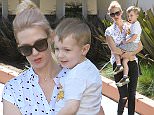Is this the story that proves blood IS thicker than water? Her adoring adoptive parents gave her an idyllic childhood. Yet Kayleigh's rejected them for the mother who's found her on Facebook
- Kayleigh Watts put into care because of birth parents' violent relationship
- Adopted by couple in Worcestershire cottage who were unable to conceive
- 22-year-old said 'controlling' adopted parents smothered her with attention
- Birth mother, Sarah Mowbray got in touch through Facebook
- Kayleigh left adoptive parents and has now moved to near Sarah

Kayleigh Watts pictured with her biological mother Sarah Mowbray. Sarah found Kayleigh after seeing a picture of her on Facebook that look like Sarah at the same age
Growing up in the heart of the English countryside, playing in the fields and riding horses, Kayleigh Marie Watts enjoyed what sounds like a perfect childhood — especially as she had been taken into care by social services at five years old because of the violent, dysfunctional relationship of her birth parents.
To the 90,000 British children languishing in the care system, she would have seemed one of the lucky ones.
After her difficult start in life, Kayleigh was placed with a foster family who were so smitten with the blonde, blue-eyed youngster that they adopted her.
Instead of being raised in institutions, she moved into a cosy cottage in Worcestershire and settled into family life with Len and Monica Watts, then in their 40s, and their older adopted son Mark, 11.
The couple, unable to have children of their own, were thrilled. Their dream had been fulfilled.
‘They’d tried for many years to have kids but in the end had to accept it just wasn’t meant to be.
'I’m sure it was very hard for them but they didn’t really like to talk about it with us,’ says Kayleigh, now 22.
Settled at the village primary school and revelling in her parents’ undivided attention, as a youngster Kayleigh was thriving.
Little was said about the early years of her life, though she knew her surname had been Thomas.
Any questions were quietly batted away by her parents and she soon learned not to ask questions about her birth family.
‘When Mark and I came along I think we gave them something they were really missing,’ says Kayleigh. ‘They gave everything to us and were great fun. As a little child I couldn’t have asked for more.’
Len, a welder, supported the family, as Monica had given up her nursing job to fulfil her dream of motherhood.
Always there for the children after school, she would help them with homework and took great pleasure in cooking for the family.
Len, though equally devoted, was the head of the household. His word was law and at the time — after experiencing the chaos of children’s homes — Kayleigh was happy just to know where she stood.


Kayleigh, pictured left aged three, was taken into social care at five because her birth parents had a violent dysfunctional relationship. Now, 22, she has shunned her adoptive parents after her birth mother made contact through Facebook
So why, then, when the birth mother who gave Kayleigh up for adoption got in touch with her on Facebook five months ago, did she leave the adoptive family who raised her without so much as a backward glance?
Kayleigh claims that, far from being abusive or unkind, the adoptive parents who raised her simply loved her too much, smothering her with affection.
She says that, having battled so hard to have a family of their own, they were unable to let Kayleigh go as she matured into an adult, so much so that she felt like a virtual prisoner in their home.

Kayleigh, aged two before being adopted, is pictured here with her birth mother Sarah
So when her birth mother, Sarah Mowbray, got in touch in November after searching through every Kayleigh Marie on Facebook, Kayleigh wasted little time in leaving the family home and moving in with her.
Cosy nights in watching television with Len, 69, and Monica, 61, have been swapped for bingo, copious cigarettes and pints of Carling lager with 41-year-old Sarah.
It isn’t immediately clear why Kayleigh would choose to exchange her adoptive parents’ stable, comfortable home for the comparatively chaotic existence of her birth mother.
Sarah had a series of dysfunctional relationships and a son, Daniel, 15, by a different father before settling down with Terry Mowbray, 39, an unemployed farm worker.

Cosy nights in watching television with Len, 69, and Monica, 61, have been swapped for bingo, copious cigarettes and pints of Carling lager with 41-year-old Sarah
Yet Kayleigh is adamant that life with her birth mother is far preferable to living with a couple whose desperate desire for children led their adoptive daughter to feel suffocated with love.
‘If you’d asked me when I was 15 what life was like with my parents, I would have told you it was brilliant,’ she says confidently.
‘I was the apple of their eye, probably more so than Mark, and I never really noticed that they were quite controlling because I had everything I wanted.’
Looking back, though, the first event to shake the family happened when she was 11.

Kayleigh pictured aged one. Kayleigh is adamant that life with her birth mother is far preferable to living with a couple whose desperate desire for children led their adoptive daughter to feel suffocated with love
While she was perfectly content, she claims that her brother Mark could no longer stand their parents’ strict rules and what she describes as the ‘stifling’ atmosphere at home.
One morning, at the age of 17, he left and didn’t come back.
‘He just set off for school in the morning and we never saw him again,’ says Kayleigh.
‘I knew they’d been arguing but at the time I didn’t realise how bad it was. He said they’d been controlling him all the time, telling him who he could be friends with and what he was allowed to do.
‘He got a lift to Hereford with a friend and that’s where he’s been ever since. To me at the time it was totally confusing. My parents were devastated and kept trying to call him, to get him back, but he didn’t want to know.
‘Now I can see that’s when things started to change for me, too. They had always been quite controlling, but it gradually got worse and worse.
'I hardly saw my friends from school and even when I saw my cousins they never really left me to play with them. My life was with my mum and dad, and that was it.
‘When I was 16 or 17, reaching the age when I was ready to grow up and explore the world, everything changed. They went from being loving parents to people who were wrapping me in cotton wool. It’s like my life happened in two parts: first happy, then totally and utterly miserable.’
There is, of course, another possible explanation for Kayleigh’s clashes with her adoptive parents: straightforward youthful rebellion.
Most teenagers don’t like following their parents’ rules — but then most don’t have another mother to run to when things at home are tough.
For their part, Mr and Mrs Watts refused to comment on Kayleigh’s claims. Speaking from their home, Mrs Watts said: ‘We don’t want to get involved in this at all. ’


Sarah was just 21 when Kayleigh was taken into care. She said she was 'vulnerable' and just a kid. Sarah is pictured right aged 23. Kayleigh is pictured left now aged 22
Kayleigh claims that her adoptive parents’ struggle to conceive left them so desperate for a family that they were unable to cope when their children turned into teenagers and became more independent.
‘I can see that they must have really wanted children, and they were really fantastic adoptive parents at first,’ she says. ‘The problems came when I started to develop a personality of my own — when I wanted to see the world outside the family unit.
‘They were incapable of accepting that, and their control got tighter and tighter until I felt like I couldn’t breathe.’
Though there is no suggestion that the couple were abusive towards their children, Kayleigh says her brother’s departure, coupled with her maturing into a teenager, damaged the family beyond repair.

Kayleigh, aged two living in a children's home before she was adopted. Kayleigh claims that her adoptive parents¿ struggle to conceive left them so desperate for a family that they were unable to cope when their children turned into teenagers and became more independent
Despite getting reasonably good GCSEs in maths, English, science and food technology, Kayleigh decided against doing A-levels and instead found work, first as an apprentice hairdresser and later as a care worker.
‘Everything really fell apart when I was 17, when I started to see more of the world outside and wanted to spend time with different people,’ she says.
‘Mum and Dad just wouldn’t allow it. I wasn’t allowed to go out, I had my phone taken off me and I wasn’t allowed to have a boyfriend. I was 21 years old before I got my first boyfriend.
‘It was so different to the way they treated me when I was younger, I didn’t know what to do. I felt like a prisoner in my own home.’
When Kayleigh was 18 she tried to run away for the first time.

Kayleigh as a new born. After arguments with her adoptive parents, she begun the process of seeking contact with her birth mother through the local authority
‘My parents found me walking to the bus stop with a bag over my shoulder. They just grabbed me and took me home. After that I was banned from going out of the house altogether for a while.’
Miserable and isolated, she began to self-harm, slitting her wrists and hiding them with long-sleeved tops.
‘It’s hard to explain the feeling but the pain of cutting myself was a way of controlling the pain I had inside,’ she says. ‘It was a pleasurable feeling because it was a sort of release.
‘I know my parents thought they were protecting me but actually it was killing me. I’m convinced they just didn’t want me to grow up. They had wanted children so badly and now they didn’t want to let their daughter go.
‘I told them they were suffocating me, but they acted as if I belonged to them and no matter what I did or said they would carry on as they pleased.

She may have been given up for adoption but surely, Kayleigh reasoned, she would have more in common with her own flesh and blood than with her adoptive parents. She is pictured here at 18 months in a children's home
‘It was as if all that love they had for me turned into something terrible. Like it didn’t matter how I felt because I was theirs and that was all there was to it.’
The rows escalated and a second attempt to leave, in which she fled to her boyfriend’s home, was foiled after her parents tracked down the address and, she says, brought her home.
Meanwhile, quietly, she had begun the process of seeking contact with her birth mother through the local authority.
She may have been given up for adoption but surely, Kayleigh reasoned, she would have more in common with her own flesh and blood than with her adoptive parents.

Kayleigh thought that Sarah may have been given up for adoption but surely, Kayleigh reasoned, she would have more in common with her own flesh and blood than with her adoptive parents
Three weeks later, fate hurried things along. Sarah, by then happily married with a teenage son, had spent seven years trying to track down Kayleigh and was painstakingly trawling through Facebook.
Contacting adopted children in this way is regarded by professionals as potentially harmful. But going through official channels had failed to yield results and Sarah — who says she was ‘so vulnerable and just a kid myself’ (she was 21) when social services took Kayleigh — decided to pursue her own investigations.
The early flurry of online exchanges between the pair makes fascinating reading. Although she was thrilled to have found her mother, there is clear reticence on Kayleigh’s part.
They make painstaking arrangements for letters to be exchanged through the official Adoption Post Box system (a formal means for birth parents and adopted children to contact each other).
But in mid-December the communication between Kayleigh and Sarah goes quiet. At this time, Kayleigh says, Len and Monicas were monitoring all her communications.
‘I was scared of them,’ she says quietly.
It was only on March 18 this year that the conversation resumed on Facebook, when Kayleigh sent the simple message: ‘Hi mum x.’
When Sarah asked if she was allowed to reply, Kayleigh wrote: ‘Of course you are. I’ve moved out now so I can do what I want xx’.
The following day they met for the first time and have not stopped talking since. Kayleigh had enough savings to pay the deposit on a flat in Malvern, near Sarah, and has been interviewed for a new job in a care home.
‘I’ve always worked and I love the work I do, so I was always going to get back to it as soon as possible,’ she says.
‘In the end, leaving home was easy. I went upstairs and wrote a note explaining everything, then packed a bag and went to work a night shift. The next morning, instead of going home, I got a lift to Worcester with a friend and I haven’t looked back.’

Her adoptive parents, meanwhile, have been left bereft by their daughter¿s absence. ¿Of course it¿s sad to leave my adoptive family behind but I had to make a choice,¿ says Kayleigh
Her adoptive parents, meanwhile, have been left bereft by their daughter’s absence.
‘Of course it’s sad to leave my adoptive family behind but I had to make a choice,’ says Kayleigh.
‘My dad always wanted to be in control of us. I told him and Mum they were smothering me, that I felt like they’d locked me up.
‘A couple of days ago I tracked down my brother on Facebook and we had our first conversation in years.
‘The first thing he asked me was why I didn’t leave years ago. I told him it was because I never had his courage.
‘The sad thing is that he never for one second questioned my decision to walk out.
‘They had always wanted children so badly, but in the end they drove us both away.’
-
 Pro racer TERRIFIES unsuspecting driving instructor
Pro racer TERRIFIES unsuspecting driving instructor
-
 Man vs. husky! Pair have hilarious argument over stolen food
Man vs. husky! Pair have hilarious argument over stolen food
-
 Heart-wrenching! Baby elephant stuck down well for 11 hours
Heart-wrenching! Baby elephant stuck down well for 11 hours
-
 Pro packing: How to get a month's worth of stuff into tiny...
Pro packing: How to get a month's worth of stuff into tiny...
-
 The epic tussle between three lions and a lone crocodile
The epic tussle between three lions and a lone crocodile
-
 Video contradicts actress's claim that son racially profiled
Video contradicts actress's claim that son racially profiled
-
 Hilarious moment weatherman finds HANGER in his suit
Hilarious moment weatherman finds HANGER in his suit
-
 Ex-CFO launches bullying tirade at Chick-Fil-A employee
Ex-CFO launches bullying tirade at Chick-Fil-A employee
-
 Woman passes out at the wheel driving on freeway
Woman passes out at the wheel driving on freeway
-
 Trailer for film 'Avion en Argentina'
Trailer for film 'Avion en Argentina'
-
 Kate is pretty in pink for final appearance before maternity...
Kate is pretty in pink for final appearance before maternity...
-
 Horrific moment woman is brutally attacked with skateboard
Horrific moment woman is brutally attacked with skateboard
-
 Killer co-pilot sought treatment for problems with his...
Killer co-pilot sought treatment for problems with his...
-
 Special forces set to swarm Southwest and operate undetected...
Special forces set to swarm Southwest and operate undetected...
-
 EXCLUSIVE: White House florist was forced out by Michelle...
EXCLUSIVE: White House florist was forced out by Michelle...
-
 Fourth time lucky! Amanda Knox tearfully says Meredith...
Fourth time lucky! Amanda Knox tearfully says Meredith...
-
 A VERY pricey job lot: Kenny Rogers' former 11-bedroom home...
A VERY pricey job lot: Kenny Rogers' former 11-bedroom home...
-
 A mother never forgets: Elephant spends 11 hours desperately...
A mother never forgets: Elephant spends 11 hours desperately...
-
 'There was a crazy mood - I hugged every passenger as they...
'There was a crazy mood - I hugged every passenger as they...
-
 A lifetime investment! Woman buys the BANK she worked at as...
A lifetime investment! Woman buys the BANK she worked at as...
-
 Couple welcome their 'one in a million' naturally conceived...
Couple welcome their 'one in a million' naturally conceived...
-
 How Charles has his shoelaces ironed - and the Queen Mum hit...
How Charles has his shoelaces ironed - and the Queen Mum hit...
-
 Why my son Elton hasn't spoken to me for seven years: In...
Why my son Elton hasn't spoken to me for seven years: In...
-
 Idris Elba can't be Bond because he isn't 'English English'...
Idris Elba can't be Bond because he isn't 'English English'...

























































































































































































































